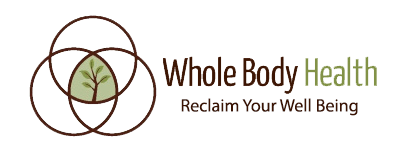February is American Heart Month — a time set aside each year to encourage Americans to pay better attention to their lifestyle choices and how they affect heart health. This awareness campaign is important because heart disease is the number one killer of both men and women in the United States, claiming an estimated 630,000 people each year. The most frightening part is that many people at risk for heart disease are not even aware they are in poor heart health.
People with high blood pressure and cholesterol, diabetes, poor dietary habits and a sedentary lifestyle, and who are obese or smoke, are automatically at higher risk for heart disease — and this accounts for nearly 50% of the US population! That’s pretty scary.
The good news is, many of these issues can be addressed through lifestyle and dietary changes that could dramatically improve heart health and result in a longer, healthier life.
Know your Numbers
Many people, especially men, don’t go to the doctor unless they’re sick, meaning they don’t get blood and lipid profiles done when they feel well. Because cholesterol, blood pressure and weight are all directly related to heart health, it’s important to know what healthy numbers are and where you stand in relation to them.
Eat Right
While this sounds cliche, eating a nutritious diet is vitally important to heart health, because what you eat literally feeds heart disease or starves it. This doesn’t mean you have to live a life free from all sweets and treats, but consuming them in moderation and focusing on foods that nourish your body is key.
For heart health, focus on consuming healthy fats. Rich oils, like olive and coconut oils and real butter, nuts, seeds, avocados and naturally fatty fish all have their place in a heart healthy diet. Stay away from hydrogenated and processed oils like margarine and canola oil. While lower calorie and fat counts can seem attractive, hydrogenated oils are actually dangerous to your health and, believe it or not, can lead to weight gain.
Get Moving
Nobody wants to hear it, but each day should contain some form of physical activity. Staying active is crucial for heart health, especially for those who work behind a desk or are otherwise primarily sedentary. Increasing physical activity does not have to include marathons or weight lifting competitions, however. A regular evening walk, taking the stairs instead of the elevator, and parking a little further away from the store entrance all can make a huge difference in healthy heart function and weight management. Getting a step counter or fitness tracker is a great way to know exactly how much you move (or don’t) and provides great inspiration to meet daily activity goals.
Chill Out
Higher levels of stress hormones in the body are not good for the heart since they can increase blood pressure and lead to a corresponding rise in risk for heart problems, stroke and aneurysm. There are many relaxation techniques to assist you through stressful situations or help you unwind after a particularly tough day. Gentle exercise, a warm bath, diffusing essential oils while reading a good book or playing with a beloved pet are all excellent examples of stress lowering activities. If you make regular de-stressing a priority, it can have a tremendous impact on heart health.
Know Heart Attack Warning Signs
In movies and TV shows, heart attacks are just that — sudden episodes of extreme pain, causing the victim to fall over in an unmistakable heart-related situation. In reality, the onset of a heart attack can be more subtle, making the victim resist seeking the immediate medical attention that could make the difference in survival and death.
According to the American Heart Association, most heart attacks involve discomfort in the center of the chest that lasts more than a few minutes, or that goes away and comes back. Heart attack survivors have described it as an uncomfortable pressure, squeezing, fullness or pain in the chest that is not always severe at first. Symptoms can include pain or discomfort in one or both arms, the back, neck, jaw or stomach, with or without breathing difficulties and may also include nausea, dizziness and excessive sweating.
Even a mild heart attack can be life-threatening. If you experience any of these symptoms, particularly if you are at high risk for heart disease, call 911 or seek medical attention immediately.
